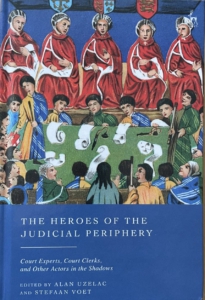Views
First Thai Monetary Judgment Enforced in China, Highlighting Presumptive Reciprocity in China-ASEAN Region
This post is kindly provided by Dr. Meng Yu, lecturer at China University of Political Science and Law, and co-founder of China Justice Observer.
Key Takeaways:
- In June 2024, the China-ASEAN Free Trade Area Nanning International Commercial Tribunal under the Nanning Railway Transportation Intermediate Court in Guangxi ruled to recognize and enforce a Thai monetary judgment (Guangxi Nanning China Travel Service, Ltd. v. Orient Thai Airlines Co., Ltd. (2023) Gui 71 Xie Wai Ren No. 1).
- Apart from being the first case of enforcing Thai monetary judgments in China, it is also the first publicly reported case confirming a reciprocal relationship based on “presumptive reciprocity”.
- The Chinese court’s confirmation that “presumptive reciprocity”, as outlined in the Nanning Statement, is a form of mutual consensus between China and ASEAN countries helps to promote the circulation of judgments within the China-ASEAN region.
News
The International Committee of the Singapore International Commercial Court: A Transnational Appeal Mechanism
Written by Yip Man (Professor of Law, Yong Pung How School of Law, Singapore Management University)
To bolster Singapore’s position as an international dispute resolution hub, the Singapore International Commercial Court (International Committee) Bill[1] was introduced in Parliament on 14 October 2024 to establish the International Committee of the Singapore International Commercial Court (the SICC), a standalone body, to hear prescribed civil appeals and related proceedings from prescribed foreign jurisdictions.[2] The Bill was passed by Parliament on 12 November 2024. The Singapore International Commercial Court (International Committee) Act 2024 (the “International Committee Act”) is uncommenced.[3] Read more
Conference: “The Next 25 Years of Private International Law: What Does the World Need?”, 23 June 2025 in Groningen
The Ulrik Huber Institute for Private International Law is delighted to announce a special one-day conference entitled:
The Next 25 Years of Private International Law: What Does the World Need?
This conference marks a significant occasion: the celebration of Professor Mathijs ten Wolde’s 25-year tenure as a professor and director of the Ulrik Huber Institute. In honour of his contribution to the field and his mentorship of generations of legal scholars, the event will bring together former PhD students and distinguished colleagues from across the globe to reflect on the future direction of private international law.
Key Themes Include:
- The role of private international law in a changing world;
- Evolving cross-border legal frameworks (e.g. EU Regulations and HccH Conventions);
- Regional vs. global harmonisation efforts;
- The impact of digitalisation;
- New frontiers in family, commercial, IP, transport and procedural law.
We warmly invite all scholars, practitioners and students with an interest in private international law to join us for this day of dialogue and celebration. More information, including the conference programme, is available via the following link: https://www.rug.nl/rechten/agenda/2025/the-next-25-years
New Book and Seminar Heroes of the Judicial Periphery
 Last month the book The Heroes of the Judicial Periphery: Court Experts, Court Clerks, and Other Actors in the Shadows, edited by Alan Uzelac and Stefaan Voet (Hart/Bloomsbury Publising, 2025) was published. The book highlights the role of perhaps less prominent, but nevertheless important actors in (international) judicial procedures from a national, comparative and/or international perspective.
Last month the book The Heroes of the Judicial Periphery: Court Experts, Court Clerks, and Other Actors in the Shadows, edited by Alan Uzelac and Stefaan Voet (Hart/Bloomsbury Publising, 2025) was published. The book highlights the role of perhaps less prominent, but nevertheless important actors in (international) judicial procedures from a national, comparative and/or international perspective.
The European Civil Justice Centre (Erasmus School of Law) hosts a seminar in collaboration with the editors to launch the book on 4th July 2025 from 10-12 CEST.
Discussions on civil justice mostly focus on procedural rules, and the role of courts, parties and lawyers. This book addresses other actors that are often overlooked in academic and policy debates. It assesses the role of court experts, court clerks and court staff, and other actors on the ‘judicial periphery’ who play an important role and often co-determine the pace, outcome, and tone of the judicial process.
The knowledge and skills of experts may be indispensable at times, but it is among the most expensive, complicated and time-consuming means of evidence. The judges adjudicate, but where experts are involved in the process, they have a decisive impact on the outcome of litigation. Therefore, a principal focus of the book is on experts and how they are appointed, managed, and remunerated across Europe and the world.
The editors will discuss topical issues highlighting these ‘actors in the shadows’ and key experts will present their ideas based on the key findings of the book chapters, followed by discussion.
Registration for free here (hosted through Eventbrite)
Speakers & program:
10.00 Opening and welcome: Xandra Kramer
10.05 Alan Uzelac & Stefaan Voet – Heroes of the Judicial Periphery
10.15 Juraj Brozovic – The Case of Judicial Advisors in Croatia
10.30 Camilla Bernt – Expert Evidence in Custody Disputes and Child Protection Cases
10.50 Discussion
11.05 Michael Stürner – Experts on Foreign Law in German Civil Procedure
11.30 Adriani Dori & Xandra Kramer – The Role of Third-Party Funders in the Shadow of the Procedure
11.45 Discussion


